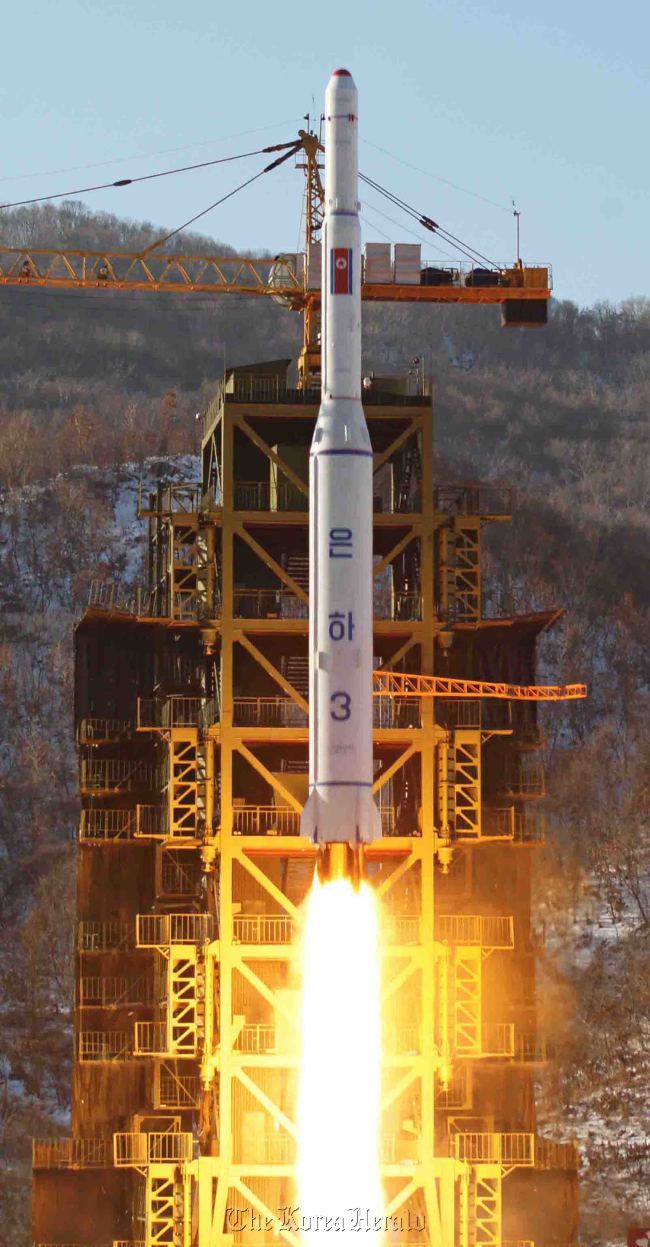China has added to the pressure on North Korea to refrain from provocations after Pyongyang hinted at nuclear and missile threats ahead of the 70th anniversary of the founding of its ruling Workers’ Party next month.
In recent weeks, Seoul has been ramping up diplomatic efforts to avert any test of a long-range missile or atomic device. Washington, Beijing and other countries have also warned of further sanctions should Pyongyang press ahead with a major provocation.
Last week, the communist state hinted that it would launch a satellite in celebration of the party anniversary on Oct. 10, while reaffirming its commitment to beef up its “nuclear deterrence” to counter what it calls a hostile U.S. policy. Uriminjokkiri, a state-run propaganda outlet, also reiterated the argument, saying “no one can take issue with its sovereign right” to launch a satellite and strengthen its nuclear deterrence.
Marking the 10th anniversary of the Sept. 19 joint statement of the six-party talks on Saturday, Chinese Foreign Minister Wang Yi highlighted the significance of following through on U.N. sanctions, warning against a further provocation.
“All parties on this issue are members of the United Nations. We have a shared responsibility to uphold peace and security on the peninsula and implement U.N. Security Council resolutions,” he told a forum at Diaoyutai State Guesthouse in Beijing.
“Any intention or attempt to disrupt peace of the Korean Peninsula and security in Northeast Asia is unjustified and undesirable. … We must not take new actions that could lead to tensions on the peninsula.”
 |
The file photo shows North Korea`s launch of a long-range rocket in 2012. (Yonhap) |
Sung Kim, U.S. special representative for North Korea policy and chief nuclear negotiator, said that of Washington’s three-pronged approach consisting of deterrence, diplomacy and pressure, it is looking into ways to tighten enforcement of existing sanctions and what it can do in case of another provocation.
In a media interview, he also called for efforts to restart the six-nation talks, expressing frustration with Pyongyang’s lack of interest in denuclearization.
“It’s important that we continue our efforts on all three tracks because I think it’s clear that just one track isn’t going to solve the problem,” the former ambassador to South Korea told Yonhap News.
“I think what’s important is for us to be able to sit down with them and hear directly from them that they are committed to denuclearization and that if and when the six-party talks resume, they will work with us in meaningful and credible negotiations toward verifiable denuclearization.”
In Vienna, the International Atomic Energy Agency adopted a resolution on Friday urging Pyongyang to refrain from conducting another underground explosion, saying its ongoing nuclear activities are a breach of U.N. resolutions and of “serious concern.”
The North’s anniversary is set to come at a delicate time given President Park Geun-hye’s summit with her U.S. counterpart Barack Obama scheduled for Oct. 16 in Washington, where Foreign Minister Yun Byung-se has said the two leaders will reach a “crucial agreement” on the North Korean issue.
Ahead of the meeting, Obama will hold separate talks with Chinese President Xi Jinping next week, while Park is expected to deliver a message on North Korea and other regional and global issues at a U.N. General Assembly session in New York.
By Shin Hyon-hee (
heeshin@heraldcorp.com)








